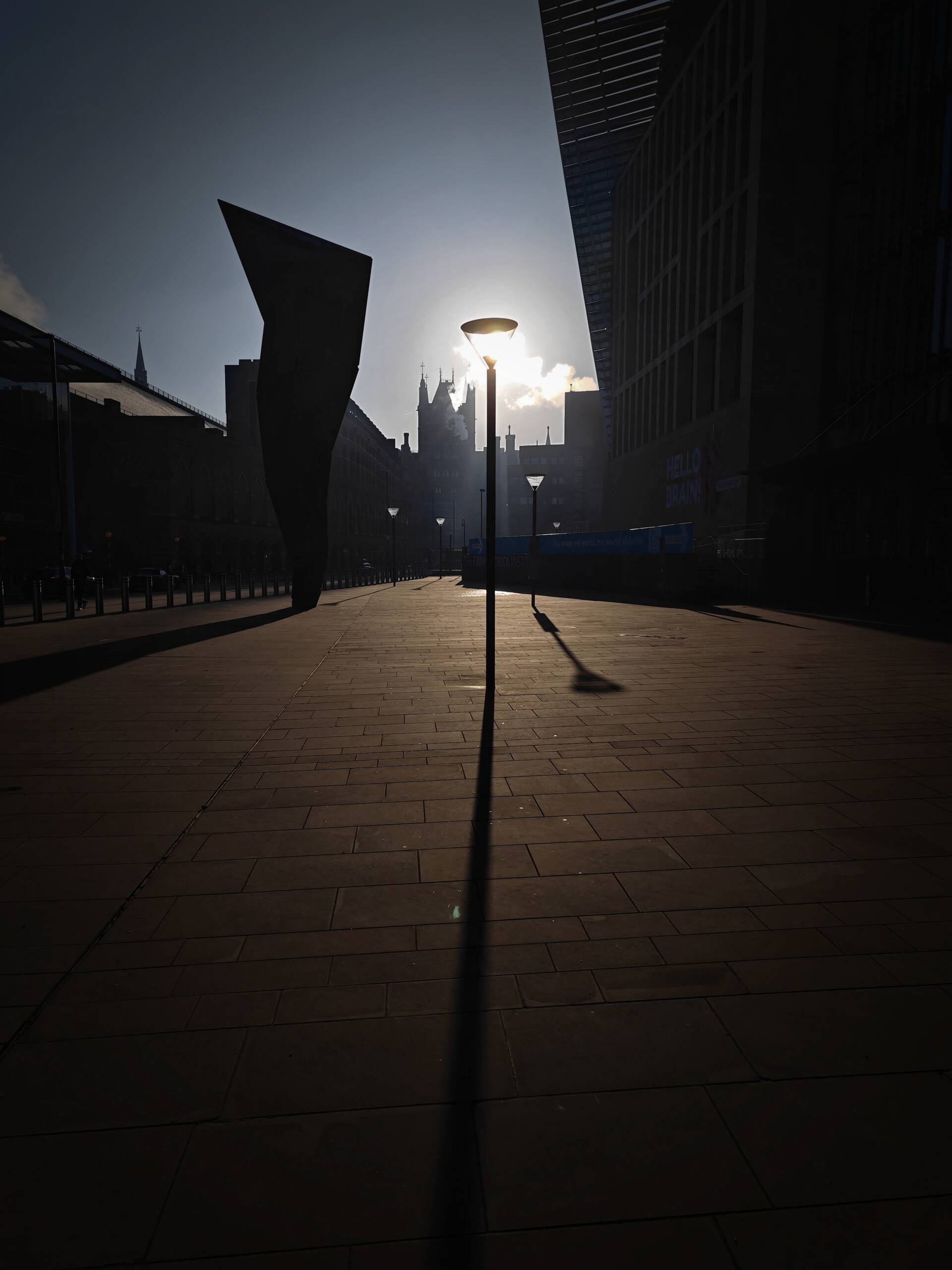
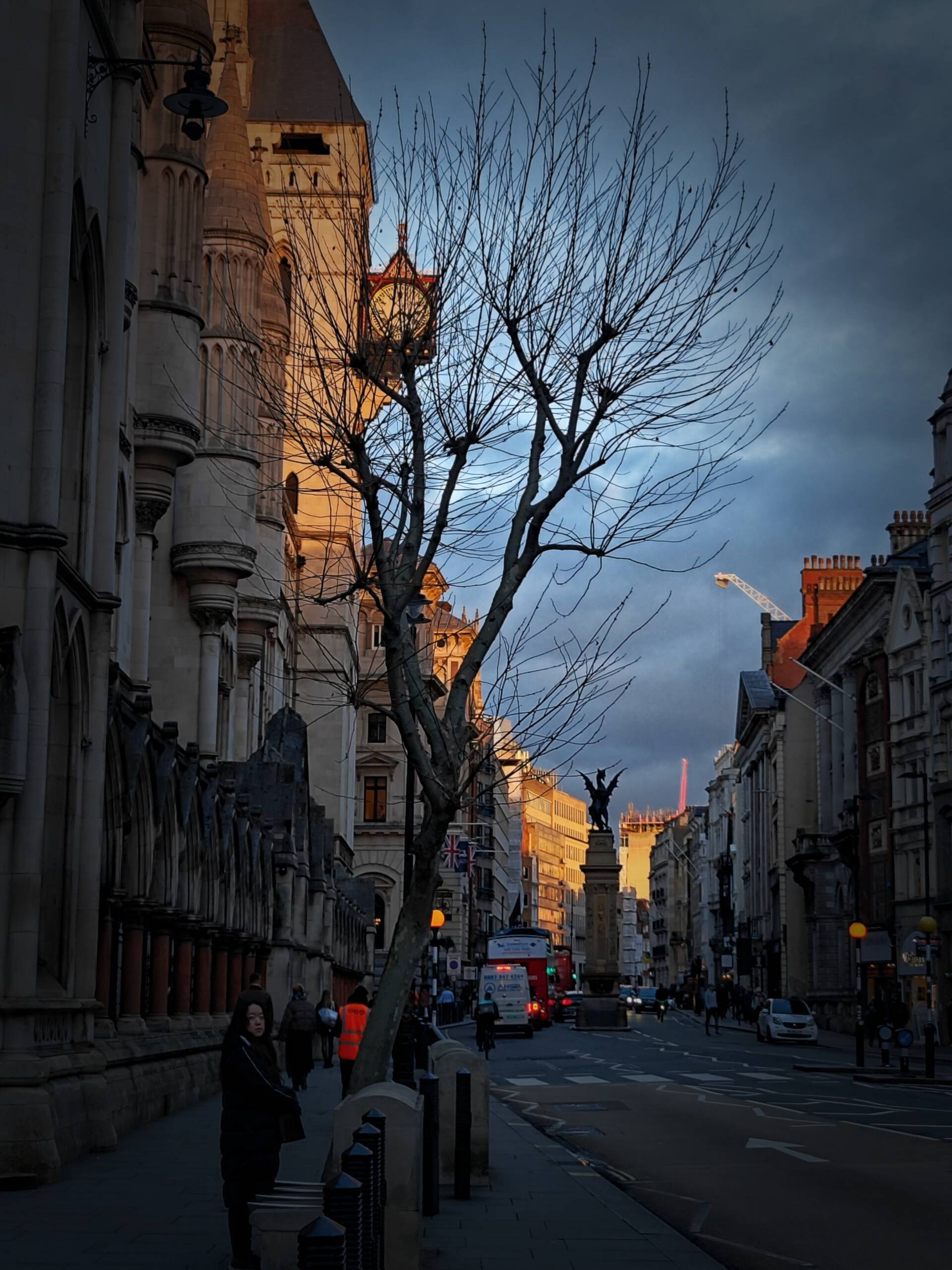
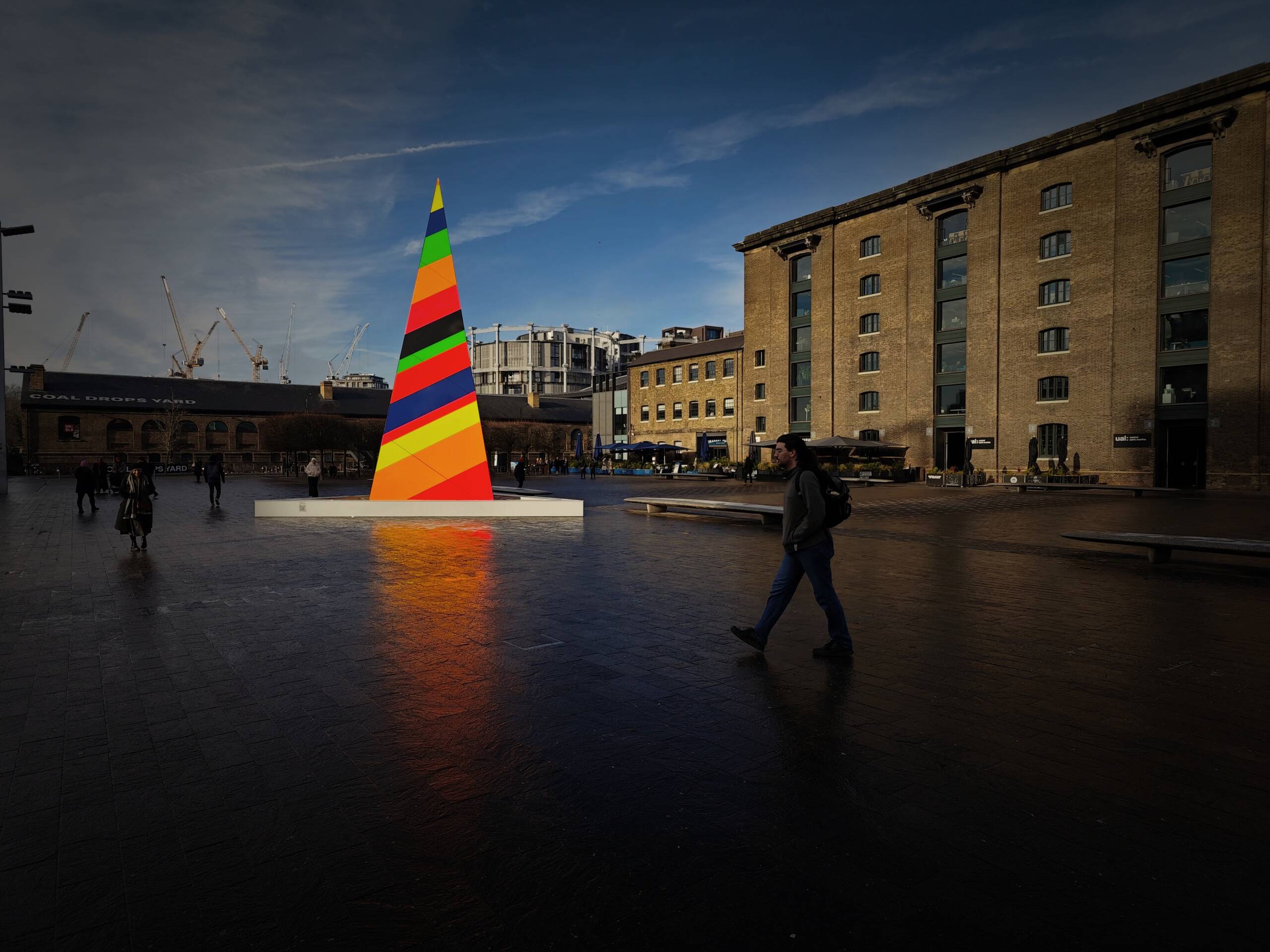
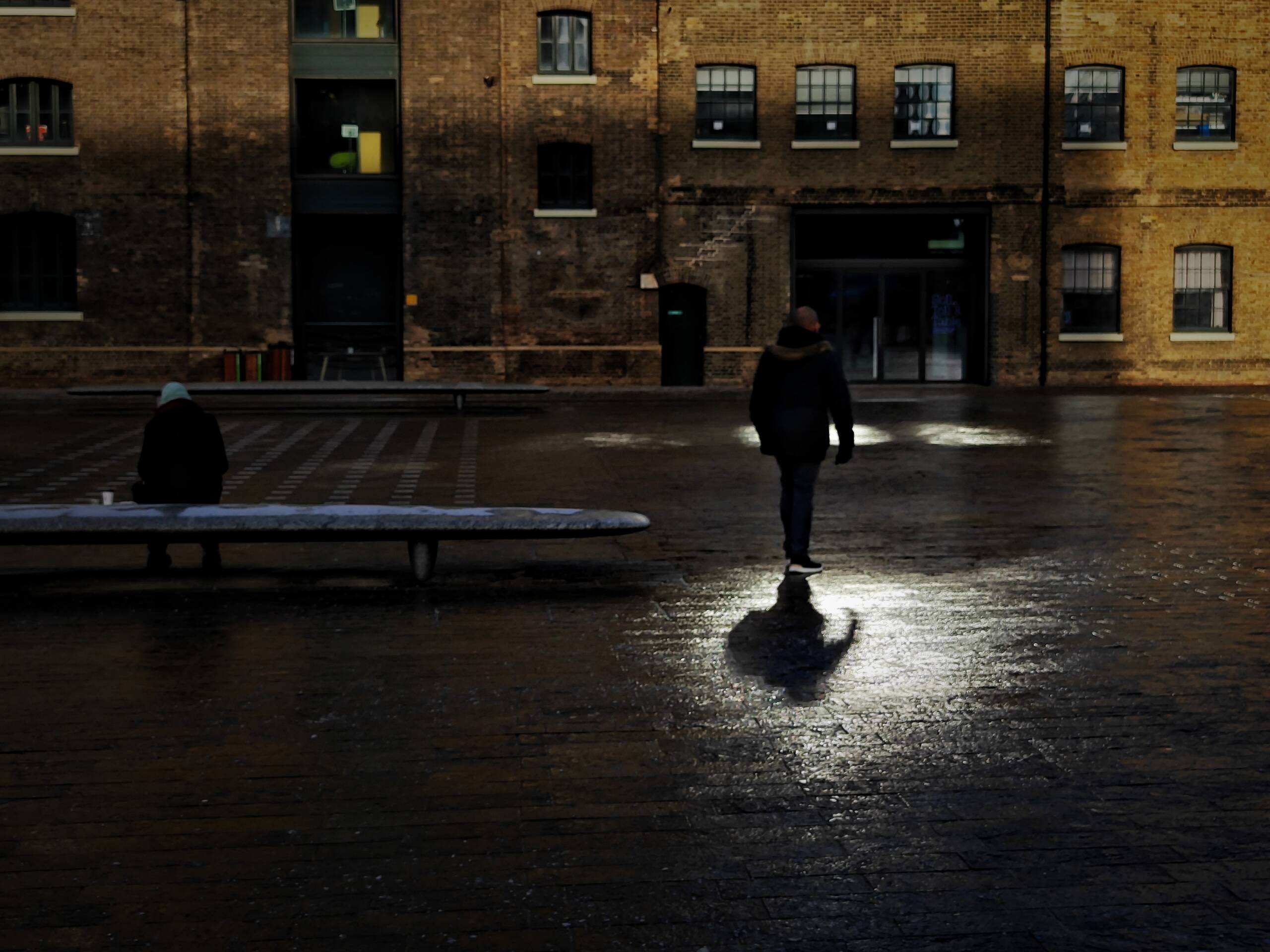 这是一段时间以来伦敦难得见到的好天气,即使阳光灿烂,气温依然很低。伦敦正在经历15年来最低气温的考验。如此寒冷的天气,大街上依然游人如织,餐厅里客满为患,看不如英国经济停滞不前的任何征兆。当然,这也许这是表面。在这座建筑前后,就是国王十字(King’s Croass),以前的烂区,吸毒贩毒、站街女随处可见、肮脏危险,警匪之战随处可见。经过多年努力,这里成为传统和现代结合的典范,过去的火车站售票厅,仓库和货物堆放点如今成为高端消费场所。附近一家印度餐厅的订位竟然需要提前2个多月,还不能保证是否能订到。
这是一段时间以来伦敦难得见到的好天气,即使阳光灿烂,气温依然很低。伦敦正在经历15年来最低气温的考验。如此寒冷的天气,大街上依然游人如织,餐厅里客满为患,看不如英国经济停滞不前的任何征兆。当然,这也许这是表面。在这座建筑前后,就是国王十字(King’s Croass),以前的烂区,吸毒贩毒、站街女随处可见、肮脏危险,警匪之战随处可见。经过多年努力,这里成为传统和现代结合的典范,过去的火车站售票厅,仓库和货物堆放点如今成为高端消费场所。附近一家印度餐厅的订位竟然需要提前2个多月,还不能保证是否能订到。
2024年的最後一天 Last day of 2024
日志
這一天我在蘇黎世的一家私家醫院探望一位朋友的繼父。趁著幾天空閑飛往蘇黎世,也就跨年了。我與朋友至少8年未見了。約好他去機場接了我住他家裏,可是航班太晚,影響他和家人,於是我訂了離他家不遠的酒店。次日他帶著女兒與我在酒店共進早餐,我才想起這家酒店在2003年住過,他那時剛剛回到蘇黎世。餐後我們帶上他的兒女去買甜點帶去醫院,我堅持要買花帶上。到了醫院病房,他繼父在輪椅上坐著,看起來狀態疲憊,可是那雙眼睛卻顯得精神。
我那時去他家跟他打乒乓球,他記得我。不一會,朋友的生父到了,接著朋友的妻子也來了。大家準備甜點,插好花,放著音樂邊吃邊聊。病房裏的氛圍不像醫院那樣,卻像在家開party。事前朋友告訴我,繼父活不了多久的時候,我想象到的場景與眼前的不同。他喂繼父吃甜點,跟他説笑,不斷用手撫摸他的臉頰。他生父與他一起有説有笑。生父與繼父15嵗就認識了,并且成爲很好的朋友,後來的事就是故事了。眼前的景象令我動容,他們在一起是那麽地充滿愛,那麽多的話語和擁抱。朋友妻子說,他丈夫每天到醫院看望繼父,生父也經常來,他們親密無間。離開醫院后我想了很多,2024年的最後一天讓我難忘的事就是人間的愛到底是什麽?愛應該如何表達?如果我們的文化中以含蓄為藉口,而不願坦白地表達愛,那麽被愛的人如何體會到愛。人間的愛不是用來藏在内心的,而是應該以語言和行爲表現出來,因爲愛沒有錯,它不應被看成對與不對。每個人都有愛與被愛的權利,每個人都應將愛表達出來,人生才不會有遺憾。
蘇黎世湖旁的酒店裏,打開一扇窗,清新的冷空氣迅速竄進屋内。清晨時分,湖面籠罩著淡淡的霧氣。我坐在窗前的椅子上繼續思索醫院裏的那一幕。我在反思自己的行爲,以及過往我的思維方式。在大多數情況下,我不善於表達愛,堅信愛是可以被感知的,持之以恆的愛一定會通過大大小小的實際事件的結果被他人感受到,而非語言那麽虛無的東西去描述。為被愛的人做事,盡心盡力,不論奉獻的是時間還是金錢,踏踏實實的總比只說不做好吧。這樣的愛沒有錯,只是往往忽視了被愛的人的互動,語言往往可以讓行爲更加生動,讓被愛的人觸動深刻。繼父每天跟兒子聊一會兒,手與手緊握,被兒子撫摸臉頰,他心裏一定被愛充實,他的細胞會更加賣力地激活,他因此能夠眼神精神矍鑠。我們要離開病房的那一刻,他繼父突然叫住我說,“Austin,我會在這裏住下去的,你下次來不一定見到我。”我眼淚差點流出來,我告訴他,醫生説了一周後就可以轉院回復性療養,下次來我陪他打乒乓。其實他知道自己的生命已接近終點,他在用一種方式與我告別。
在一個人生命終結前,他對於來自親人和朋友的愛是如何理解的?在他知道生命倒數時,他是否會覺得這樣的愛很奢侈。我就是這樣凝神望著湖面,然後拍下一張畫面,寫道,“在盲人看來,一切都是美好的。”
表達了愛被接受,是人世間最完美的愛。表達了愛卻未被接受,只是一種遺憾罷了,而愛了卻未表達或者來不及表達,那才是人世間最大的遺憾。
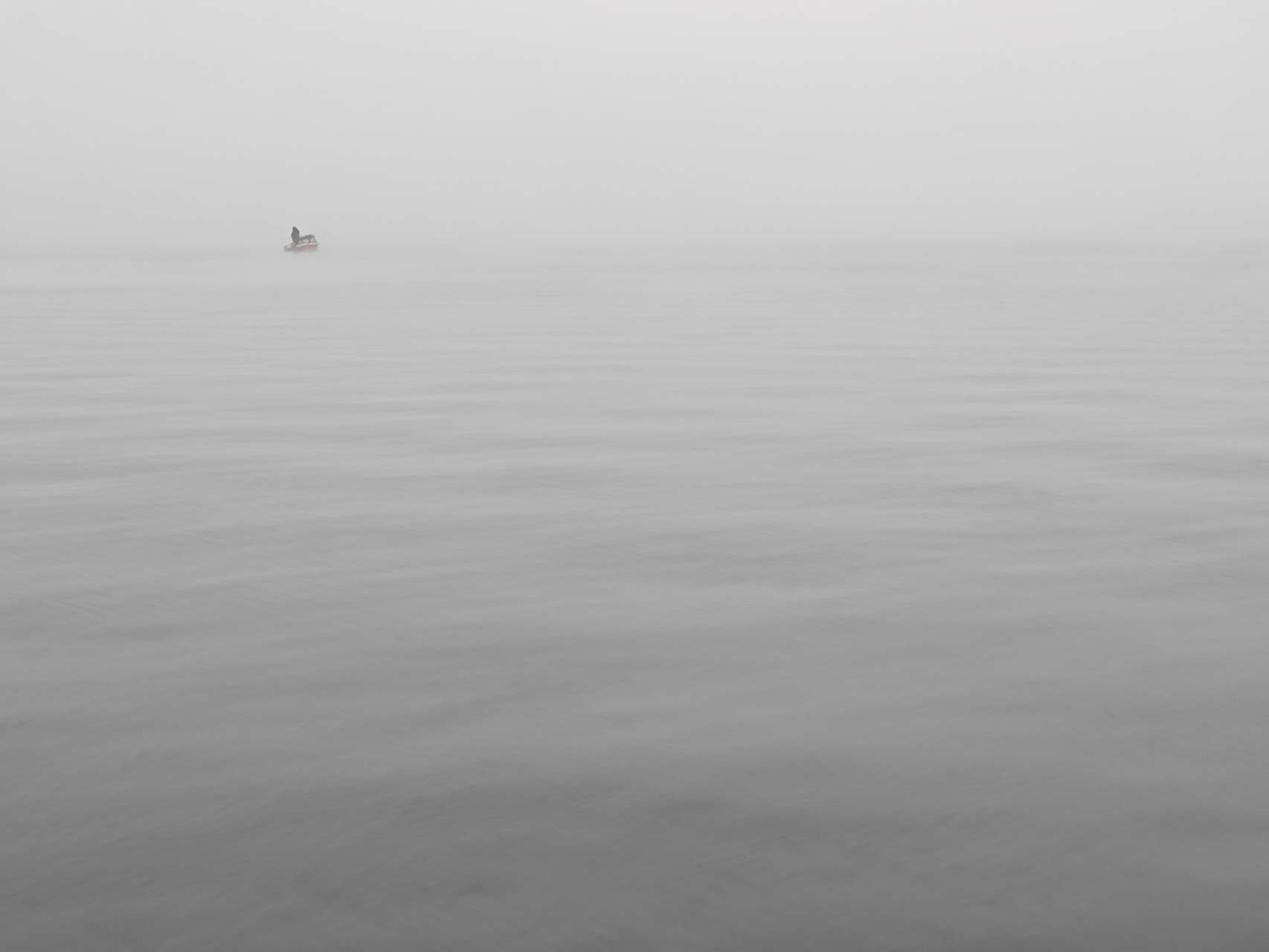
On this day, I visited a friend’s stepfather at a private hospital in Zurich. I took advantage of a few days off to fly to Zurich, coinciding with the New Year. It had been at least eight years since I last saw my friend. We had arranged for him to pick me up from the airport and stay at his home, but my flight was too late, affecting him and his family, so I booked a hotel near his house. The next day, he brought his daughter to join me for breakfast at the hotel, and I suddenly remembered that I had stayed at this hotel in 2003, just when he had returned to Zurich. After breakfast, we took his children to buy desserts to bring to the hospital, and I also insisted on buying flowers.
Upon arriving at the hospital room, I saw his stepfather sitting in a wheelchair, looking fatigued, but his eyes sparkled with spirit. I remember when I used to go to his house to play table tennis; he still remembered me. Before long, my friend’s biological father arrived, followed by my friend’s wife. Everyone prepared the desserts, arranged the flowers, and played music while eating and chatting. The atmosphere in the hospital room felt less like a hospital and more like a home party. My friend had told me beforehand that his stepfather didn’t have long to live, and the scene before me was different from what I had imagined. He fed his stepfather desserts, joked with him, and constantly stroked his cheek. His biological father was also joking and laughing with him. They had known each other since they were 15 and had become very good friends, and the subsequent events became a story of their own.
The sight moved me; they were so full of love, sharing so many words and embraces. My friend’s wife said that her husband visited his stepfather every day, and the biological father often came too; they were very close. After leaving the hospital, I reflected a lot. The most unforgettable thing about the last day of 2024 was pondering the essence of human love. How should love be expressed? If our culture uses subtlety as an excuse and refuses to openly express love, how can loved ones truly feel that love? Human love is not meant to be hidden in the heart; it should be expressed through words and actions because love is not wrong; it should not be seen as right or wrong. Everyone has the right to love and be loved, and everyone should express their love; otherwise, life will have regrets.
In the hotel by Lake Zurich, I opened a window, and the fresh cold air rushed into the room. In the early morning, a light mist covered the lake’s surface. Sitting in a chair by the window, I continued to ponder the scene in the hospital. I reflected on my behavior and my past ways of thinking. In most cases, I am not good at expressing love, firmly believing that love can be sensed — that enduring love will surely be felt by others through the results of various actions rather than being described by words that seem so insubstantial. Doing things for loved ones, wholeheartedly, whether the contribution is time or money, seems more solid than merely speaking empty words. This kind of love is not wrong, but it often neglects the interaction of those being loved; words can make actions more vivid and deeply touch those who are loved. The stepfather chatted with his son every day, holding hands, and being stroked on the cheek; he must have felt filled with love in his heart, and his cells activated more vigorously, which is why his eyes sparkled with spirit. Just as we were about to leave the hospital room, his stepfather suddenly called out to me, saying, “Austin, I will be staying here; you might not see me next time you come.” Tears nearly came to my eyes, and I told him that the doctor said he could be transferred for rehabilitation in a week, and I would accompany him to play table tennis next time. Deep down, he knew that his life was nearing its end, and he was bidding farewell to me in his way.
How does a person understand the love from family and friends at the end of their life? When they realize their time is limited, do they perceive such love as extravagant? I gazed intently at the surface of the lake and then took a picture, writing, “To a blind person, everything is beautiful.”
The most perfect love in the world is when love is expressed and accepted. When love is expressed but not accepted, it is merely a regret. However, love that is felt but not expressed, or cannot be expressed in time, is the greatest regret of all.
伦敦的圣诞节 Chrismas in London
日志
伦敦的圣诞节总是热闹非凡,尽管没有白色圣诞的期待,但寒冷的天气并没有阻挡人们的热情。街道上熙熙攘攘,酒吧和餐馆成为了人们聚集的温暖港湾,大家在这里享受节日的氛围。商店里人潮涌动,似乎每个人都在尽情购物,花光一年来的积蓄,共同庆祝这一年一度的节日。这样的场景展现了节日的欢乐与人们对美好生活的向往。在这样的氛围中,街头的装饰灯闪烁着温暖的光芒,五彩斑斓的圣诞树装点着每一个角落。孩子们在父母的陪伴下,兴奋地指着橱窗里精美的玩具,脸上洋溢着期待的笑容。街头艺人们也在此时展现自己的才艺,悠扬的音乐和动人的歌声交织在一起,增添了节日的气氛。
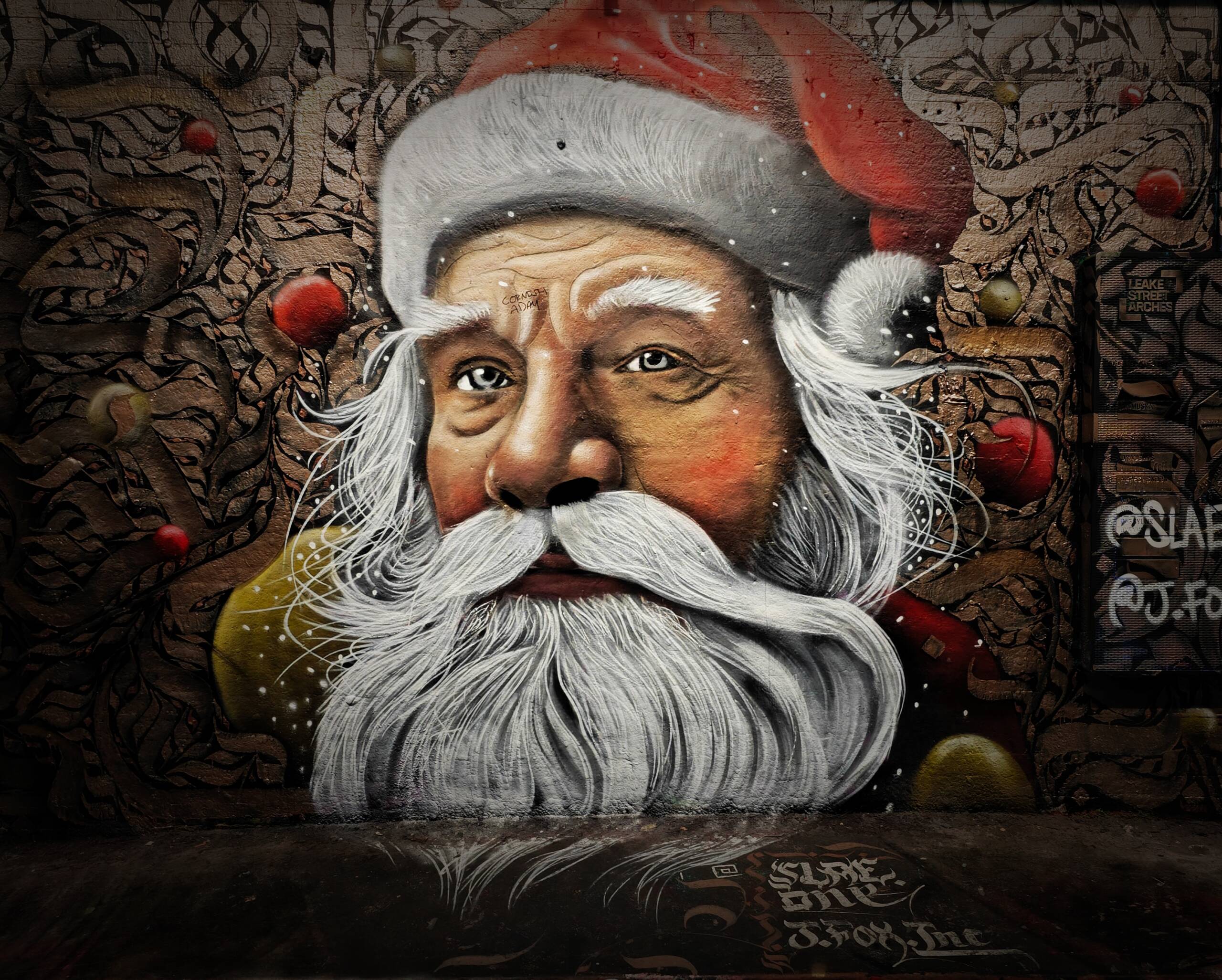
人们在酒吧里举杯畅饮,分享着过去一年的故事和新年的愿望。餐馆的桌子上摆满了丰盛的圣诞大餐,火鸡、布丁、热红酒……每一道菜肴都散发着诱人的香气,仿佛在召唤着每一个路过的人。
尽管外面寒风刺骨,但人们的心中却充满了温暖。这样的圣诞节,不仅仅是一个节日,更是人与人之间情感交流的时刻。每一次相聚、每一句祝福,都让这个冬天变得格外温馨。人们在欢笑声中,渐渐忘却了寒冷,沉浸在节日的喜悦之中。其实,在热闹的氛围中,我依然没有感到温暖。尽管街道上灯火辉煌,酒吧里笑声不断,但内心的空虚却如寒风般刺骨。那些闪亮的装饰和热闹的人群,似乎都无法填补心中的那份缺失。
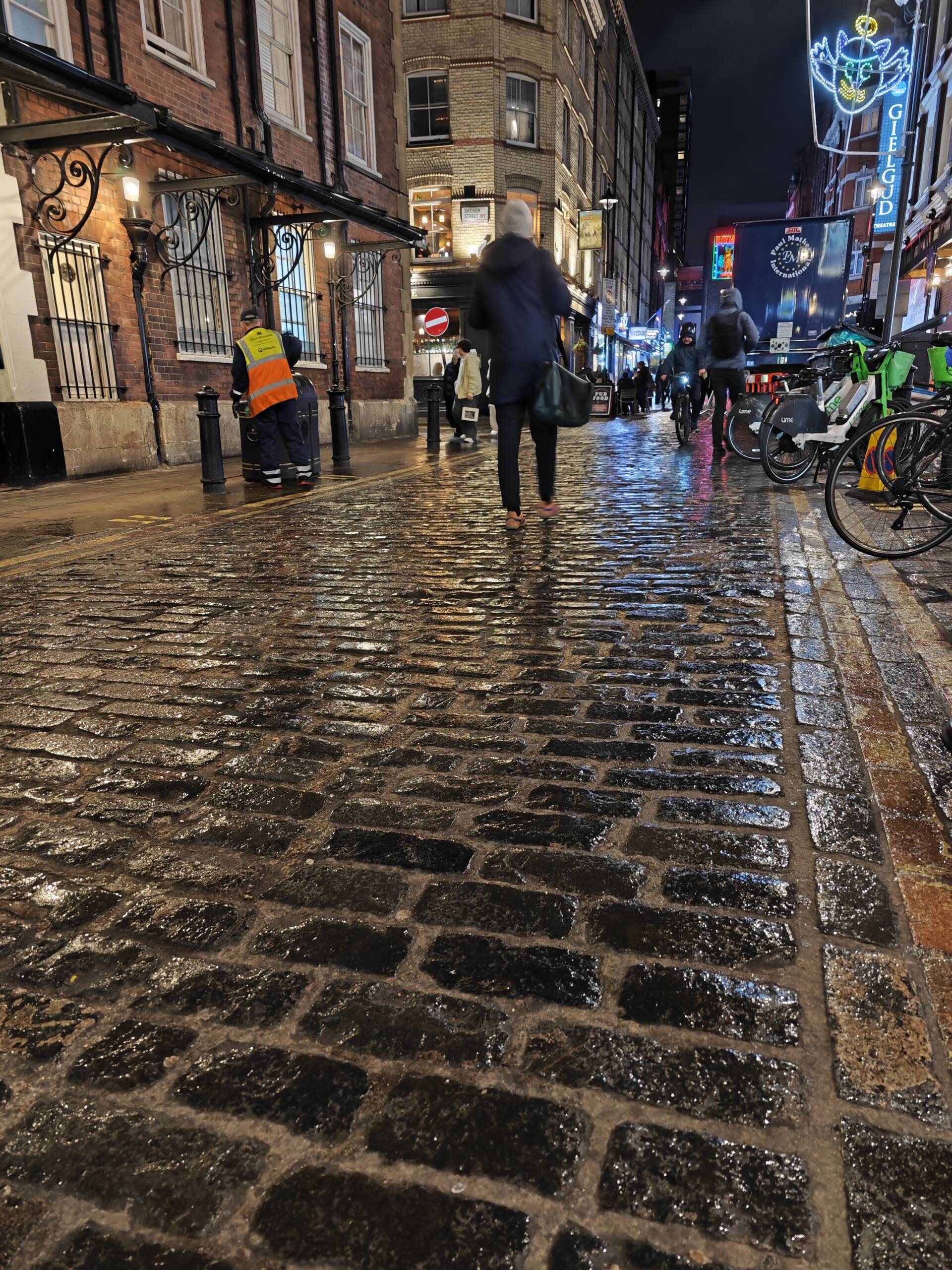
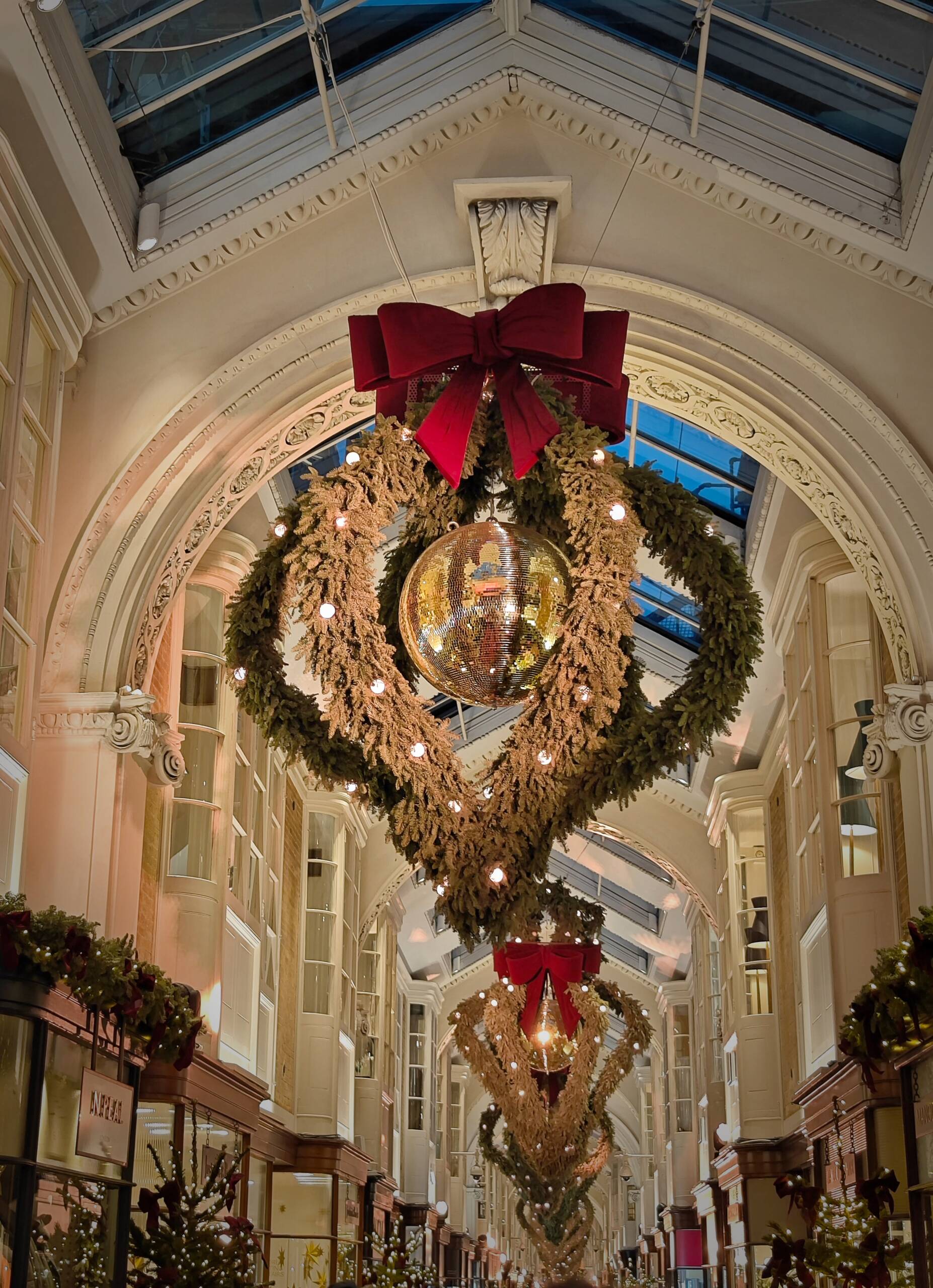
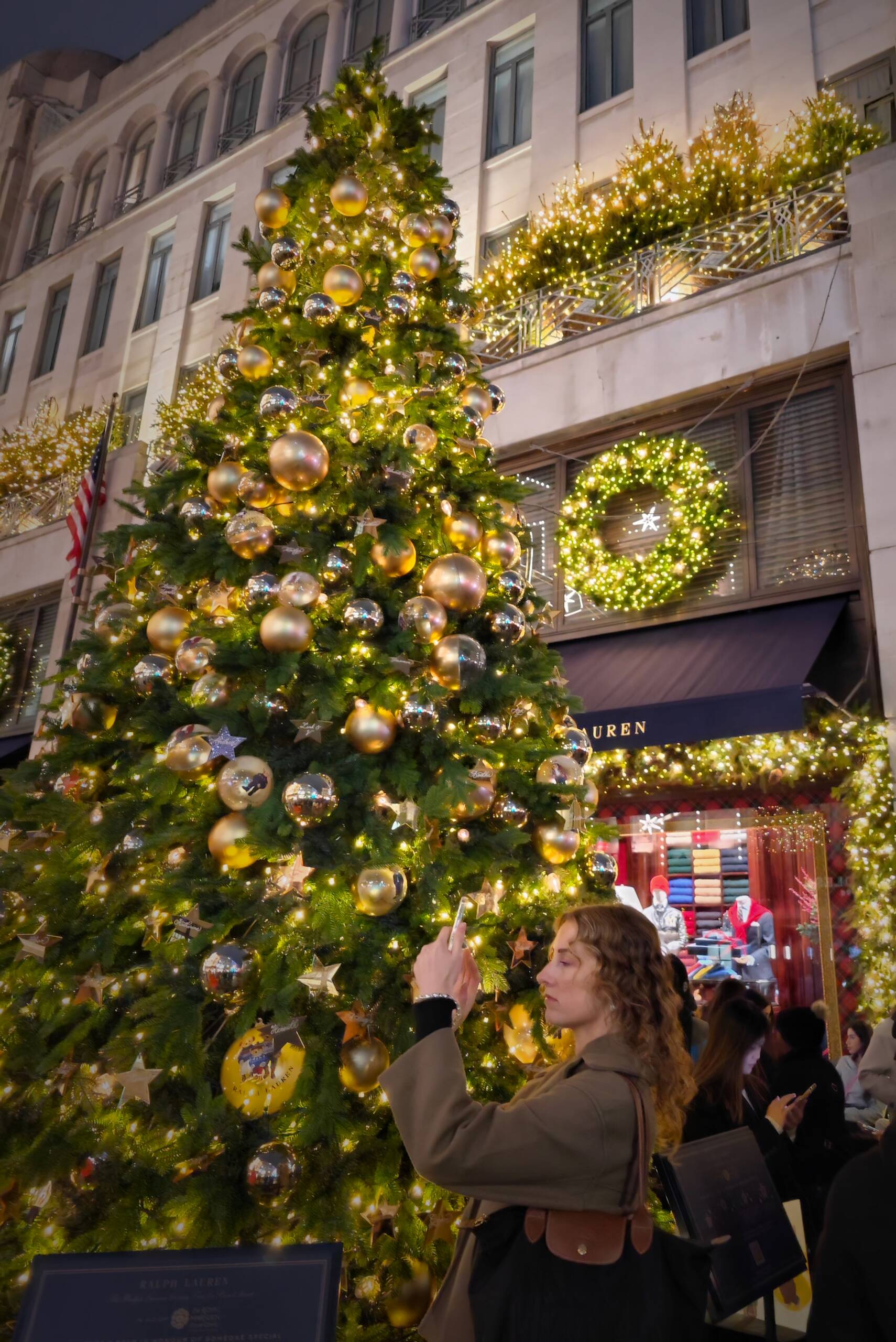
西方的圣诞节,那个充满期待的晚上。无论是等待圣诞老人降临的兴奋,还是与家人围坐在一起的温馨,都让人感到无比幸福。此刻,即使是街上的人们欢声笑语围绕着我,我的心情却无法与之共鸣。
我漫步在街头,耳边是节日的旋律,但心中却是平静的湖面,毫无波澜。或许,这样的季节提醒我,真正的温暖不在于外在的热闹,而在于内心的归属感与爱。尽管我在这喧嚣中游荡,却依然渴望那份久违的温暖,渴望与心灵深处的连接。
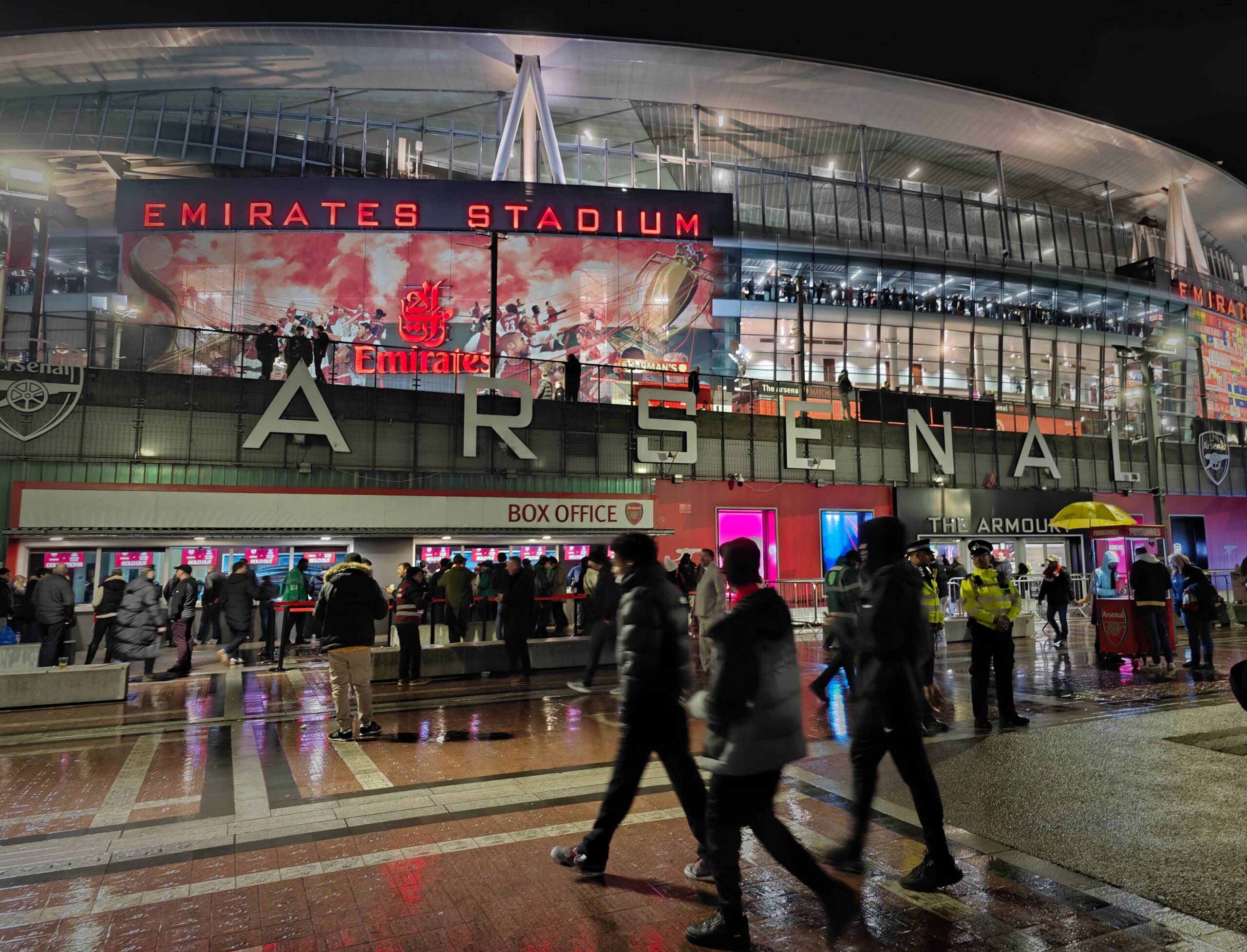
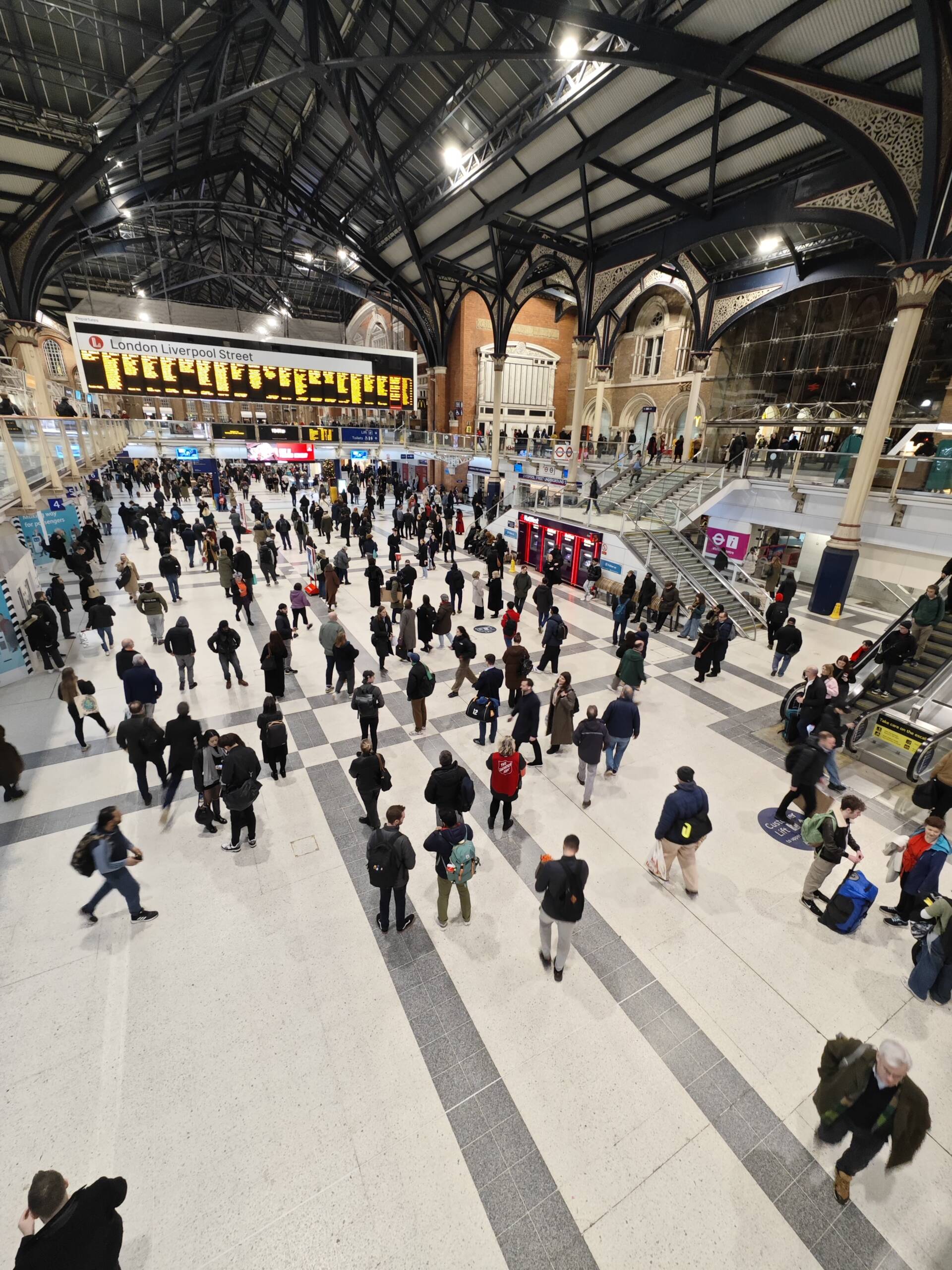
London’s Christmas is always bustling and lively. Although there is no expectation of a white Christmas, the cold weather does not dampen people’s enthusiasm. The streets are crowded, and pubs and restaurants become warm havens where everyone enjoys the festive atmosphere. Shops are filled with people, as if everyone is eager to spend all their savings accumulated over the year, celebrating this annual holiday together. This scene showcases the joy of the season and people’s yearning for a better life.
In this atmosphere, the street decorations twinkle with warm lights, and colorful Christmas trees adorn every corner. Children, accompanied by their parents, excitedly point at the exquisite toys in shop windows, their faces beaming with anticipation. Street performers take this opportunity to showcase their talents, with melodious music and enchanting songs blending together, enhancing the festive ambiance.
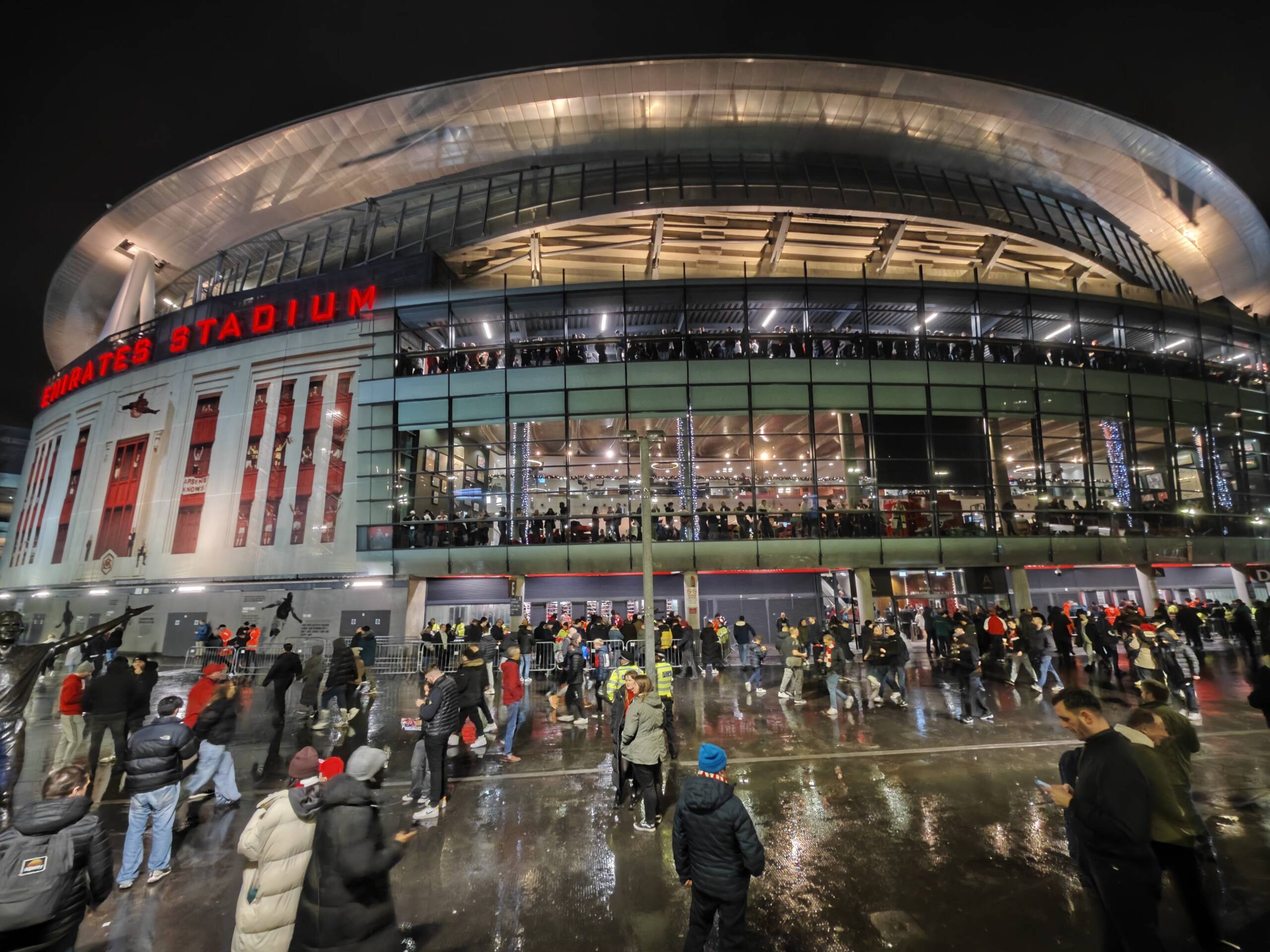
People raise their glasses in pubs, sharing stories from the past year and wishes for the new one. Tables in restaurants are filled with sumptuous Christmas feasts—turkey, pudding, mulled wine… Each dish wafts an enticing aroma, seemingly calling to every passerby.
Despite the biting cold outside, people’s hearts are filled with warmth. This Christmas is not just a holiday; it’s a moment for emotional connection between people. Every gathering, every wish shared makes this winter feel particularly cozy. Amidst the laughter, people gradually forget the cold, immersing themselves in the joy of the season.
However, in the midst of this lively atmosphere, I still do not feel warm. Despite the bright lights on the streets and the continuous laughter in the pubs, an emptiness within me feels as piercing as the cold wind. Those sparkling decorations and bustling crowds seem unable to fill the void in my heart.
I think back to the Christmases of the past, those nights filled with anticipation. Whether it was the excitement of waiting for Santa Claus or the warmth of sitting together with family, those moments brought me immense happiness. Now, that sense of expectation feels distant. Even with the joyful voices around me, my mood fails to resonate with theirs.
As I stroll through the streets, festive melodies fill the air, yet my heart is like a still lake, devoid of ripples. Perhaps this season reminds me that true warmth does not lie in external festivities, but in a sense of belonging and love within. Even as I wander through this chaos, I still long for that long-lost warmth, yearning for a connection deep within my soul.
夢境-終有一天 Dream – One Day Eventually
日志
 走進一個虛無境界需要勇氣和信念,這麽多年以來正是它們支持著我一步步進入那個世界。每個人都有追求和夢想,與情與慾與錢構成這個追求,而少有人追求除此之外的虛無縹緲的所謂信念。信念是精神層面的理想,最完美的終極,在沒有情慾和錢的狀態下,信念是純粹的,無暇的,也許某些宗教做到了。
走進一個虛無境界需要勇氣和信念,這麽多年以來正是它們支持著我一步步進入那個世界。每個人都有追求和夢想,與情與慾與錢構成這個追求,而少有人追求除此之外的虛無縹緲的所謂信念。信念是精神層面的理想,最完美的終極,在沒有情慾和錢的狀態下,信念是純粹的,無暇的,也許某些宗教做到了。
我時不時恍惚著走進這樣一種狀態,褪去身上早已暗淡的幾個光環,還有几頂還無價值和破爛不堪的帽子。我無法成爲修道士,那是一種無謂的犧牲,我也無法成爲哲學傢,那是一種無聊的探索,自古以來,哪個哲學家拯救了人類?現實一些吧,放棄大部分,忘掉大部分,珍惜自己所想和所愛,也許就是一點點,人生不就是這一點點嗎?終了時,一點點也會隨風而去,很快被人忘掉。
進入自己的世界,尋找慰籍,與自己對話,在自己之外完美演好一臺戲。周圍的一圈看戲的人,到底關心誰呢?是劇情還是演戲的人,他們喜歡把劇情套入自己的生活情境之中,使之更爲貼切和生動。每個人都在臺子上,有人真實地賣力地演,有人投機取巧嘩衆取寵,結果是會演戲的活得自在,不會演戲的灰頭灰腦。不過,明白了這出戲到也覺得無妨。畢竟舞臺上依舊有靈犀之通的人,轉身一刻的眼神會確定一生的愛和寄托,這就是牽挂,這牽挂竟成爲支撐信念的理由。自古至今,多少情意之士爲了眼眸瞬間的靈犀等待一生,直至天荒地老,又有多少俠客爲之财枯命断,终究还是人逃不出情的魔法。
Entering a realm of emptiness requires courage and faith, and for all these years, these very qualities have supported me step by step into that world. Everyone has their pursuits and dreams, intertwined with emotions, desires, and money, while few seek the elusive so-called faith beyond these. Faith represents an ideal on a spiritual level, the most perfect ultimate; in a state devoid of desires and money, faith is pure and flawless, perhaps some religions have achieved that.
From time to time, I find myself slipping into this state, shedding the few dim halos that have long surrounded me, along with several worthless and tattered hats. I cannot become a monk; that would be a meaningless sacrifice, nor can I be a philosopher; that is a tedious exploration. Throughout history, which philosopher has saved humanity? Let’s be realistic—let go of most things, forget much, and cherish what I think and love, even if it’s just a little. Isn’t life just about that little bit? Ultimately, even that little bit will drift away with the wind, quickly forgotten by others.
Entering my own world, seeking solace, and conversing with myself—performing a perfect play outside of myself. Among the audience watching the show, who really cares? Is it the plot or the actors? They enjoy embedding the plot into their own life situations, making it more relatable and vivid. Everyone is on stage; some act sincerely with all their might, while others resort to tricks to win applause. The result is that those who can act live freely, while those who cannot are left in a muddle. However, understanding this performance isn’t necessarily a bad thing. After all, there are still those on stage who share a deep connection; a momentary glance can affirm a lifetime of love and attachment. This is what we call longing, which becomes the reason to uphold faith. Throughout history, how many affectionate souls have waited a lifetime for that fleeting moment of connection, enduring until the end of time? And how many heroes have sacrificed their lives for it, ultimately unable to escape the magic of love?
First Semester in King’s College 国王学院第一学期
日志
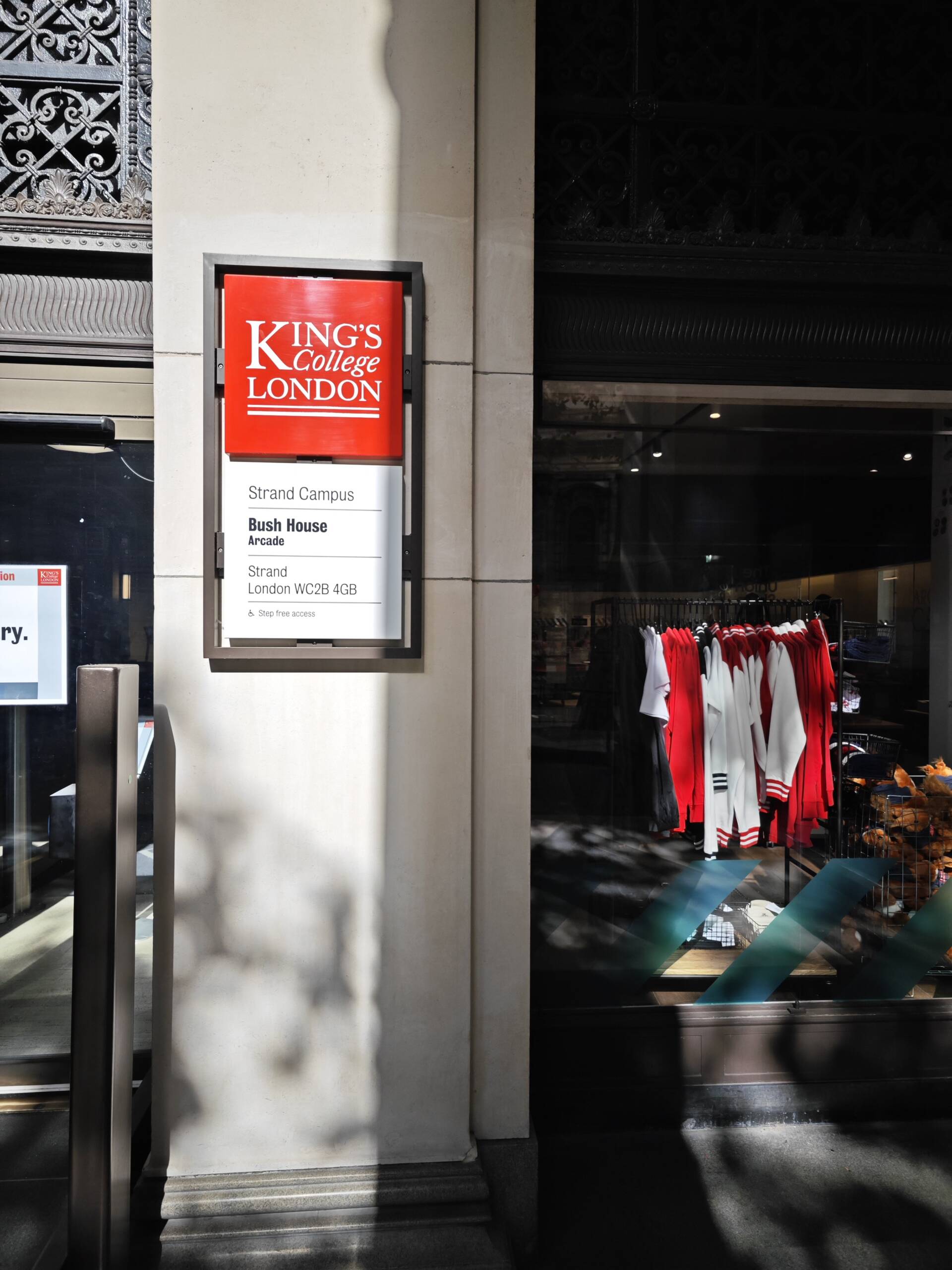
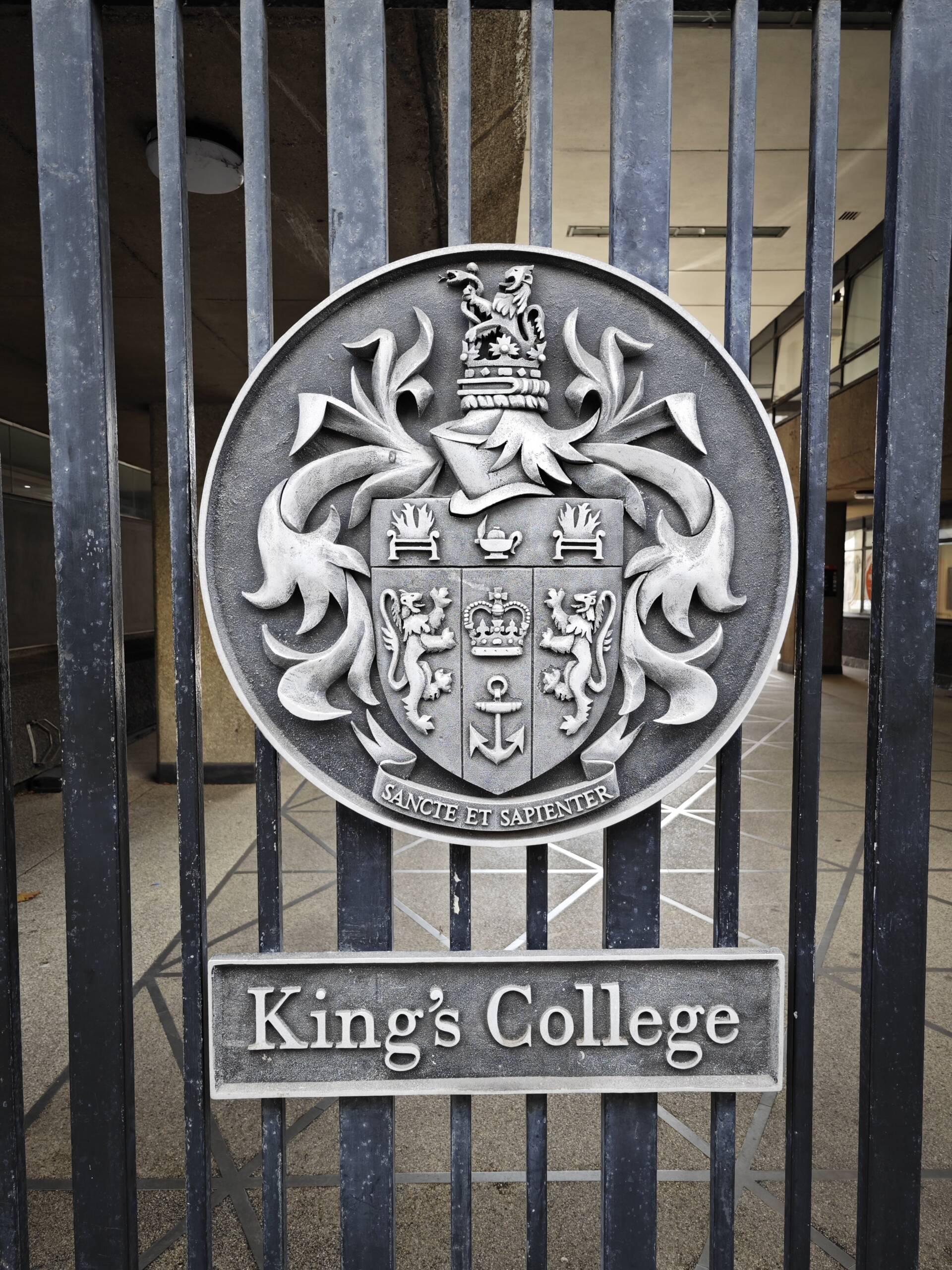
First Semester at King’s College
As the crisp autumn air swept through the streets of London, I walked briskly toward the Strand campus of King’s College. It had been nearly four months since I’d stepped onto the campus, and every day felt like a new adventure. Since my arrival last September, I have immersed myself in a whirlwind of new knowledge.
I recalled the first day vividly—the towering spires of the college, the lively chatter of students, and the intoxicating blend of history and modernity that surrounded me. I felt an overwhelming sense of excitement as I crossed the threshold into this prestigious institution. I had always dreamed of studying in London; now that dream was her reality.
As the semester progressed, I found myself falling deeper in love with my studies. The content of my courses challenged me in ways I never expected. I particularly enjoyed my class on international security, where they explored the rich tapestry and diversity of world order. The lecture felt like a journey through time, and I often finished the causes buzzing with ideas.
As the first semester came to a close, I couldn’t help but reflect on how quickly time had flown. Yesterday I submitted the summative assessment, 7 days before the deadline. I will have my first holiday of Christmas in London!
无尽地等候 A Wait Filled with Sadness
日志
母亲走了,我来到尼泊尔博卡拉湖畔,在这里期待着母亲坐在这张椅子上充满慈爱地看着我。可是,我始终未能等到她。我与她隔世相望,思念无尽,期待无尽。
My mother has passed away, and I have come to the shores of Phewa Lake in Pokhara, Nepal, where I wait for her to sit in this chair, looking at me with love. However, I have never been able to wait for her. I gaze at her from across the realms, with endless longing and endless expectations.

《哈瓦那,我的朋友》(Havana, Mi Amigo)
日志
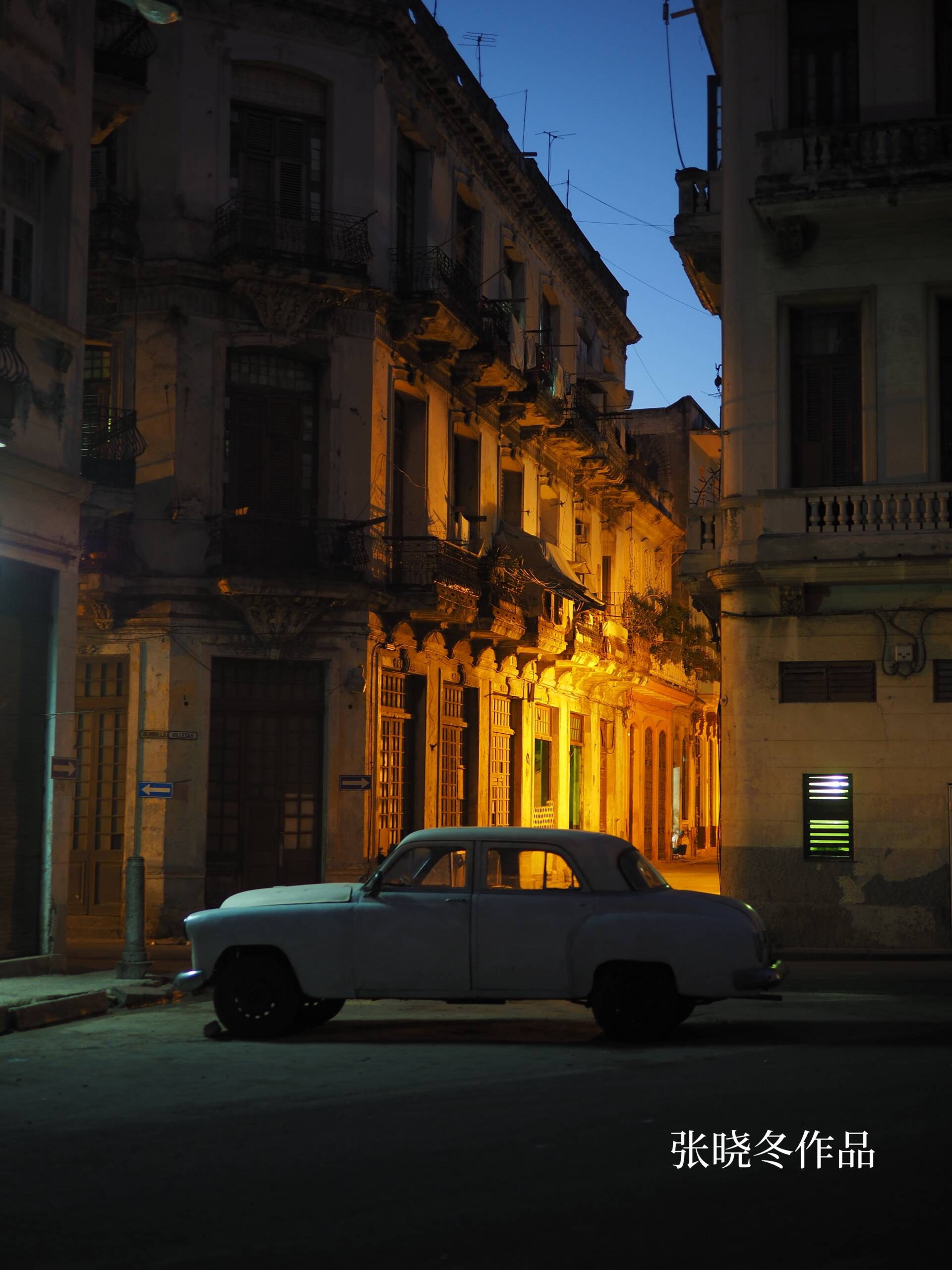
This book was published in 2018 in Taipei
Once upon a time in the vibrant city of Havana, there lived a beautiful young woman named Elena. Known for her adventurous spirit and love for music, Elena spent her days exploring the colorful streets filled with classic cars, lively salsa rhythms, and the scent of rich Cuban coffee wafting through the air.
One sunny afternoon, as she strolled along the Malecón, the iconic seawall, Elena met a traveler named Marco who was a photographer from Italy, captivated by the beauty of Havana. They struck up a conversation, sharing stories about their cultures, dreams, and the magic of the city surrounding them.
Inspired by Marco’s passion for photography, Elena invited him to join her on a journey through Havana. They visited the historic Plaza Vieja, where the architecture told stories of the past, and danced with locals in the streets, their laughter echoing against the cobblestones.
As the sun set, painting the sky in hues of orange and pink, they found themselves at a small, bustling café. There, an old man played the guitar, his fingers dancing across the strings, filling the air with the soulful melodies of boleros. Elena and Marco shared a moment that felt timeless, a connection deepened by the music and the magic of the city.
Days turned into weeks, and their friendship blossomed. Elena showed Marco her favorite hidden gems—quiet parks, vibrant art markets, and the vibrant life of the neighborhoods. In return, Marco captured the essence of Havana through his lens, creating beautiful memories that they would both cherish forever.
As their time in Havana came to an end, Elena felt a bittersweet pang in her heart. They promised to keep in touch, exchanging contact information and dreams of future adventures. Marco left with a portfolio full of stunning photographs, while Elena held onto the memories of laughter, music, and the beauty of their friendship.
Years later, as Elena walked along the Malecón, she reflected on that summer. The city had changed, but the spirit of Havana remained the same—alive with music, color, and the promise of new connections. She smiled, knowing that true friendships can transcend time and distance, just like the timeless rhythms of the city she loved so much.
You never know what is behind
日志
The warm, humid air of Havana enveloped the two men as they stood outside the small café, the sounds of salsa music and laughter drifting out onto the street. It was a moment of pure Cuban hospitality, a moment of connection and camaraderie.
The two men, Carlos and Jorge, had been friends for years, their bond forged over countless cups of coffee and late-night conversations about life, love, and politics. But this moment was different. This moment was about more than just friendship – it was about a gesture of respect, a symbol of trust, and a sign of solidarity.
Carlos, a tall, lanky man with a quick smile, extended his hand, his eyes locked on Jorge’s. Jorge, a bit shorter, with a rugged, weathered face, took it, his grip firm and strong.
The handshake was a ritual, a tradition passed down through generations of Cubans. It was a way of saying, “I respect you, I trust you, and I’m here for you.” It was a way of sealing a deal, of making a promise, of forging a bond.
As they clasped hands, the world around them melted away – the noise, the chaos, the politics. All that mattered was this moment, this connection between two men who had been through so much together.
Carlos and Jorge had grown up on the same streets, had fought in the same wars, had laughed and cried together. They had seen each other at their best and worst, and yet, their bond remained unbroken.
The handshake was a reminder of that bond, a reminder of the power of friendship and community. It was a symbol of the resilience of the Cuban people, who had faced so much hardship and yet still managed to find joy, to find love, and to find each other.
As they released their grip, Carlos and Jorge exchanged a look, a look that said it all – a look of understanding, of respect, and of gratitude. They knew that no matter what lay ahead, they would face it together, hand in hand, as brothers.
The handshake was a small act, but it was a powerful one. It was a reminder that even in the darkest of times, there was always hope, always love, and always a sense of community. And as they walked away from the café, arm in arm, Carlos and Jorge knew that their bond would last a lifetime.
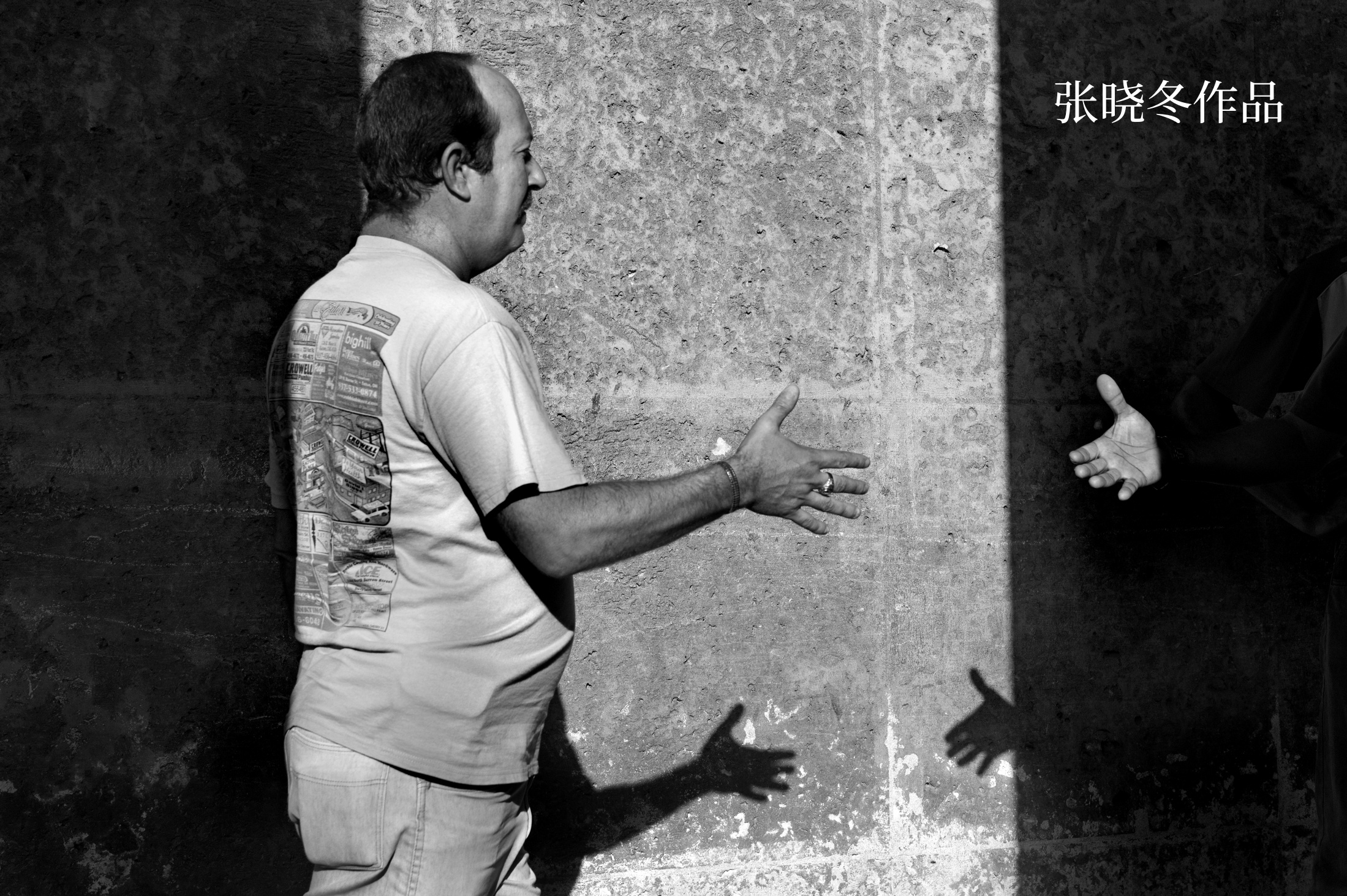
World Vintage Car Museum
日志
The island of Cuba, where the scent of cigar smoke and the rumble of vintage engines fill the air. It’s a place where time seems to stand still, where the past and present blend together like the rich flavors of Cuban coffee.
In the heart of Havana, there’s a small, dusty garage tucked away on a quiet street. The sign above the door reads “Taller de Reparaciones” – Repair Shop. Inside, the owner, Carlos, tends to his beloved vintage cars, each one a piece of Cuban history.
Among the collection, one car stands out – a 1955 Chevrolet Bel Air, its gleaming chrome and gleaming paintwork a testament to the craftsmanship of a bygone era. Carlos had restored it himself, pouring over every detail, every curve and crease, to bring it back to its former glory.
The car’s story began in the 1950s when it was first imported from the United States. It was a symbol of American excess, a status symbol for the wealthy elite. But as the revolution took hold, the car was left to rust, a relic of a bygone era.
Carlos found it in a junkyard, its engine seized, its interior worn and faded. But he saw something in it – a beauty, a charm, a piece of history. He spent years restoring it, pouring over books and talking to old-timers who remembered the car’s heyday.
As he worked, Carlos would often take the car out for spins around the city, feeling the wind in his hair, and the sun on his face. He’d drive past the Malecón, the sea wall that runs along the coast, and watch the sunset over the ocean. It was like reliving the past, feeling the freedom and joy that came with driving a beautiful machine.
One day, a young couple, Maria and Juan, stumbled upon the garage while exploring the city. They were immediately drawn to the Bel Air, its sleek lines and vibrant colors a stark contrast to the drab, Soviet-era cars that dominated the streets. Carlos offered them a ride, and as they cruised through the city, they felt like they’d stepped back in time.
The couple fell in love with the car, and with Carlos, who became like a mentor to them. They’d spend hours talking about the car’s history, the stories it could tell, and the adventures it had been on. Carlos would regale them with tales of the car’s past, of the people who’d owned it, and the places it had been.
As the years went by, the Bel Air became a symbol of Cuban culture, a reminder of the country’s rich history and its people’s resilience. It was a car that had seen it all, from the glamour of the 1950s to the struggles of the revolution, and yet, it still had a spark, a sense of life that seemed to pulse through its very being.
And Carlos, well, he was happy to be along for the ride, to be the caretaker of this piece of history, to keep its story alive for generations to come. As he’d say, “El coche es un amigo, un compañero de viaje” – the car is a friend, a travel companion. And for Carlos, the Bel Air was more than just a car – it was a piece of his heart, a part of his soul.
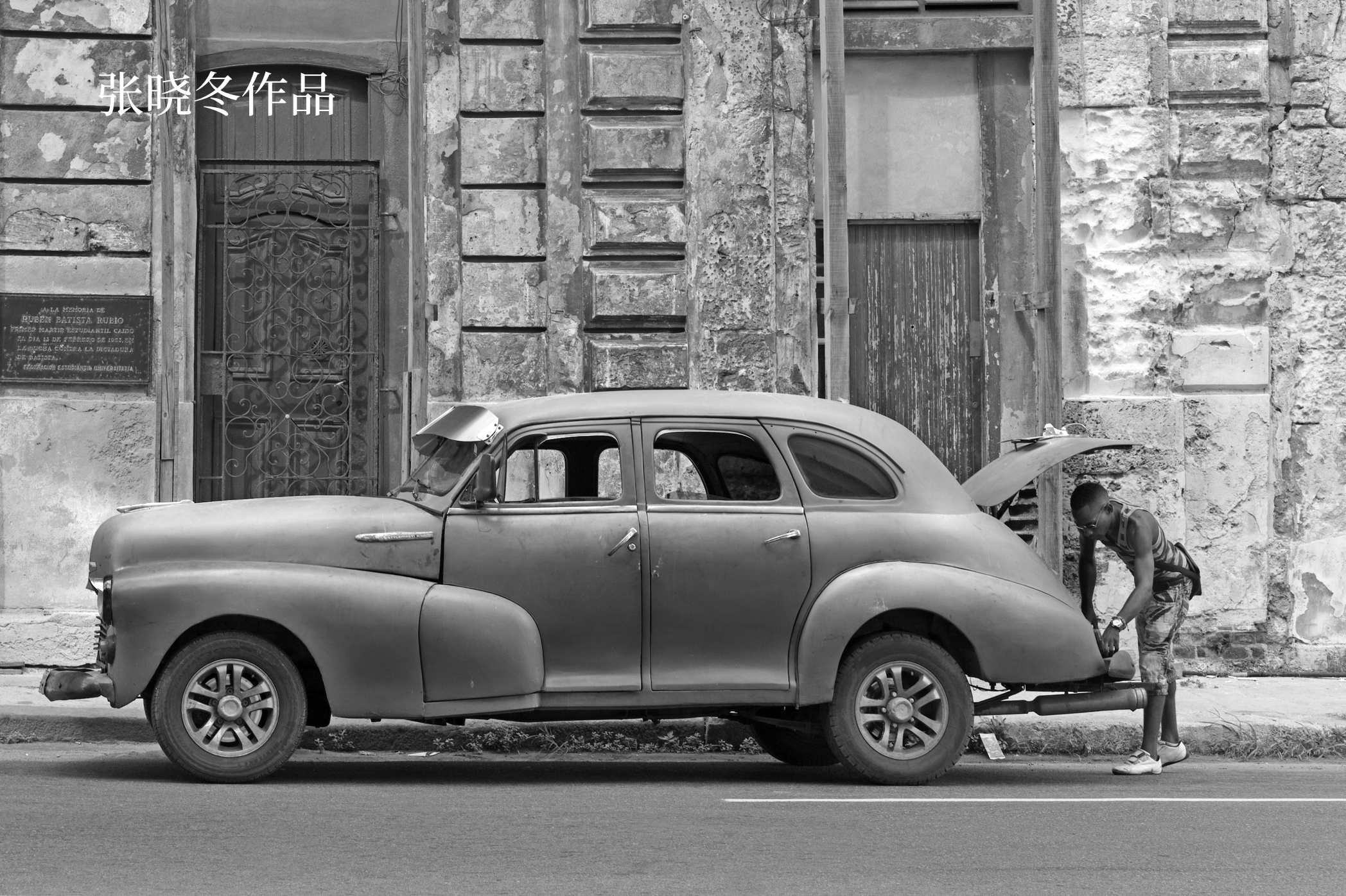
哈瓦那迷梦–古巴|我享受這裡的一切 Havana, I enjoy everything here.
日志
 我享受這裡的一切
我享受這裡的一切
空寂的心境,神寧的心態,此刻的空氣完全凝固,時間停滯。我享受這裡的一切。
哈瓦那灣是我每次到古巴的必到之處,我習慣於一早一晚徜徉在海邊,呼吸淡淡鹹味的空氣,坐在岸邊靜觀往來的人,垂釣的、晨跑的、相戀的還有無聊的人。我喜歡古巴人淡定和慢節奏的狀態,面對世界的迅猛變化,他們仍然保持垂釣者的心態。從這裡我在哈瓦那最長的Malecon海濱大道漫步,欣賞加勒比海的悠揚曲調、凝望16世紀的莫羅城堡,它高聳在哈瓦那灣入口處的峭壁上、仰望19世紀古巴獨立運動將領安東尼奧•馬賽奧、馬克西莫•戈麥斯和卡裡斯托•加西亞的青銅雕像。古巴是加勒比海最大的島,也是哥倫比亞最早發現的殖民地。她曾經是加勒比最發達的國家,很多富有的美國人包括黑手黨都在古巴買房子置地。19世紀英國一度佔領古巴,西班牙便提出要用佛羅里達換回古巴。
I enjoy everything here. The tranquil state of mind, the peaceful mentality, the air at this moment feels completely still, time stops. I enjoy everything here.
Havana Bay is a must-visit place for me every time I visit Cuba. I am accustomed to wandering by the seaside in the morning and evening, breathing in the faint salty air, sitting by the shore quietly observing the people passing by—those fishing, jogging, in love, and the bored ones. I like the calmness and slow pace of the Cuban people; in the face of the rapid changes in the world, they still maintain the mindset of a fisherman. From here, I stroll along the longest Malecon seaside boulevard in Havana, appreciating the melodious tunes of the Caribbean Sea, gazing at the 16th-century Morro Castle, which towers on the cliffs at the entrance of Havana Bay, and looking up at the bronze statues of 19th-century Cuban independence leaders Antonio Maceo, Maximo Gomez, and Calixto Garcia. Cuba is the largest island in the Caribbean and was the first colony discovered by Columbus. It was once the most developed country in the Caribbean, with many wealthy Americans, including the Mafia, buying property in Cuba. In the 19th century, Britain briefly occupied Cuba, and Spain proposed to exchange Florida for Cuba.
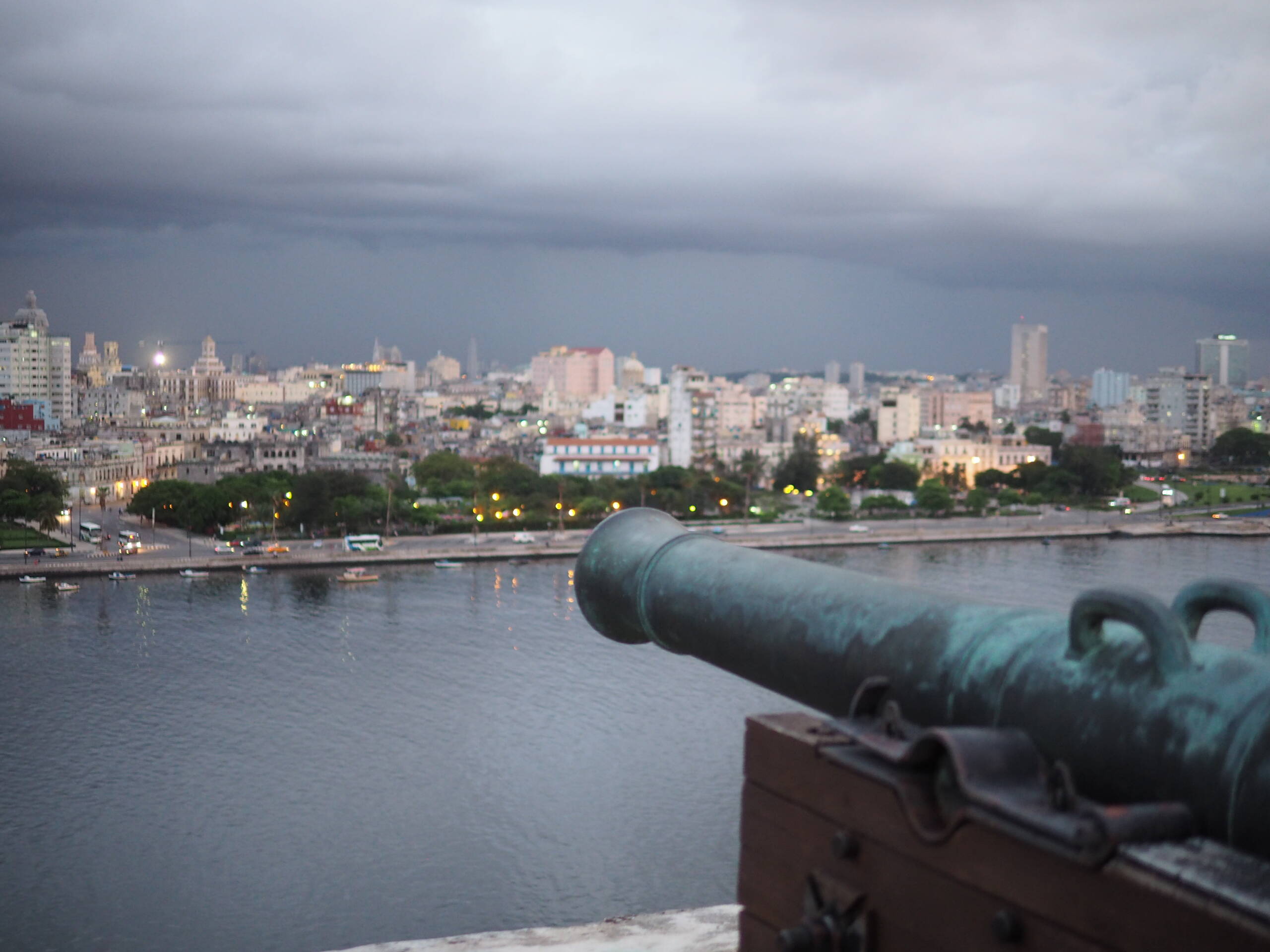
OLYMPUS DIGITAL CAMERA
就是這麼一個位於西半球的遙遠的地方卻牢牢地拽著我的心,每一次降落在哈瓦那國際機場,一種熟悉的氣息浸入肺腑,我默默地對自己說一聲我回來了。我無法確切知道為何我被這裡的一切所吸引,可是有一點我明白,一種鄰里的親切、默契、淡然和超脫感動了我。這個社會不完整,就像所有社會不完整一樣,不過在不完整裡有一點點完整對於我個人而言足矣。一個被經濟封鎖幾十年的國家,一個物質匱乏的社會還能有如此健全的教育、醫療制度是在令人敬佩,這也是我美好記憶的因素,它勾起我對童年的回憶。我的童年是在與這種社會狀態相似的的條件下度過的,美好和無憂慮。
十三年六次對哈瓦那的跟蹤拍攝,使我更加深刻認識到縱使社會進步飛快,民族文化不能被破壞,即使物質再充實,人們必須堅守屬於自己的文化。古巴人做到了。如果以歷史觀看古巴,這樣一個與西方深厚淵源的國家不能不收到外來文化侵擾或者影響,特別是來自歐洲和美國的文化滲透,可是它卻沒有。這是古巴人的自豪和優越,這一點可以從他們眼神中看出,也可以從他們的一舉一動中觀察到,堅定的信念和快樂的心態結合讓我們看到的是一種隨意和滿足。沒有去過古巴的人無法感受到這一點。
It is in this distant place in the Western Hemisphere that my heart is firmly held. Every time I land at Havana International Airport, a familiar scent fills my lungs, and I silently tell myself, “I’m back.” I cannot precisely know why I am attracted to everything here, but one thing I understand is that a sense of neighborliness, understanding, calmness, and transcendence moves me. This society is incomplete, just like all societies are incomplete, but in that incompleteness, a little bit of wholeness is enough for me. A country that has been under economic blockade for decades, a society lacking in material resources, still possesses such a sound educational and healthcare system—this is admirable and also a factor in my beautiful memories, as it evokes my childhood reminiscences. I spent my childhood under conditions similar to this social state—beautiful and carefree.
Thirteen years and six visits to Havana have deepened my understanding that national culture cannot be destroyed even as society progresses rapidly. Even if material wealth increases, people must uphold their own culture. The Cubans have achieved this. From a historical perspective, a country like Cuba, with deep ties to the West, cannot avoid the intrusion or influence of foreign cultures, especially from Europe and the United States, yet it has not been overwhelmed. This is the pride and superiority of the Cuban people, which can be seen in their eyes and observed in their every action. The combination of firm beliefs and a happy mindset reveals a sense of ease and satisfaction. Those who have not been to Cuba cannot feel this.
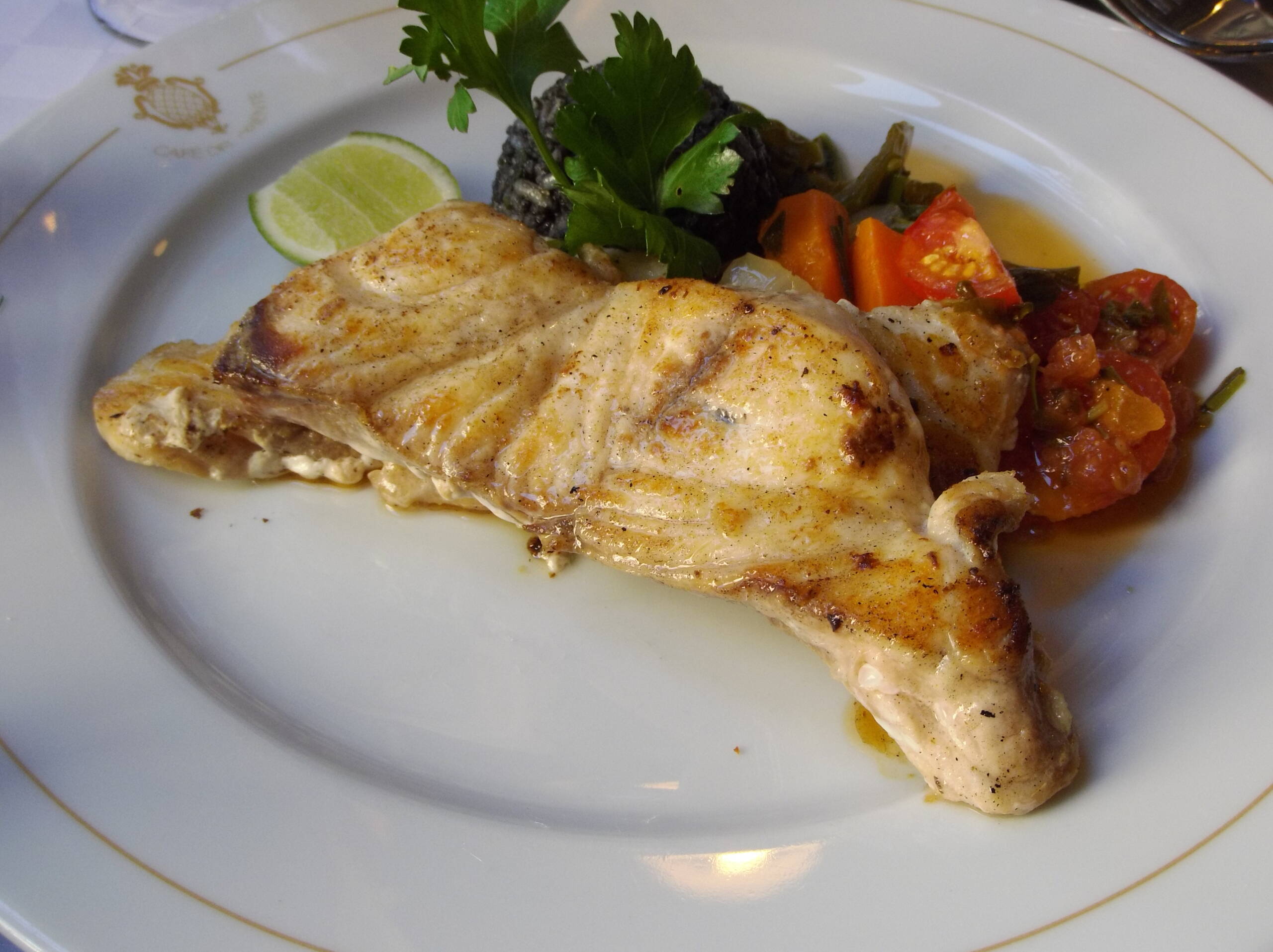
HB4116
我享受與古城裡的人交往,去他們家裡做客,了解他們的生活,聽他們講故事;我喜歡拍攝他們的生活、環境和街上的一切;我尊重他們的觀點和認識,他們沒有特別的愛與恨,可是卻能明白告訴我誰是他們的朋友。處於一個互聯網極不發達的地方,他們通過有限的資源也能快速了解外面世界的發展。沒有誰可以封鎖誰,看看被封鎖幾十年的中國是怎樣的狀態,再看看那些隨意封鎖別人的國家又是怎樣墮落下去。
I enjoy interacting with the people in the old city, visiting their homes, understanding their lives, and listening to their stories. I like to capture their lives, the environment, and everything on the streets through photography. I respect their views and insights; they do not have strong feelings of love or hate, yet they can clearly tell me who their friends are. In a place where the Internet is very underdeveloped, they can still quickly learn about the developments in the outside world through limited resources. No one can completely block anyone else; just look at the state of China, which has been under blockade for decades, and then observe how those countries that arbitrarily block others have fallen into decline.
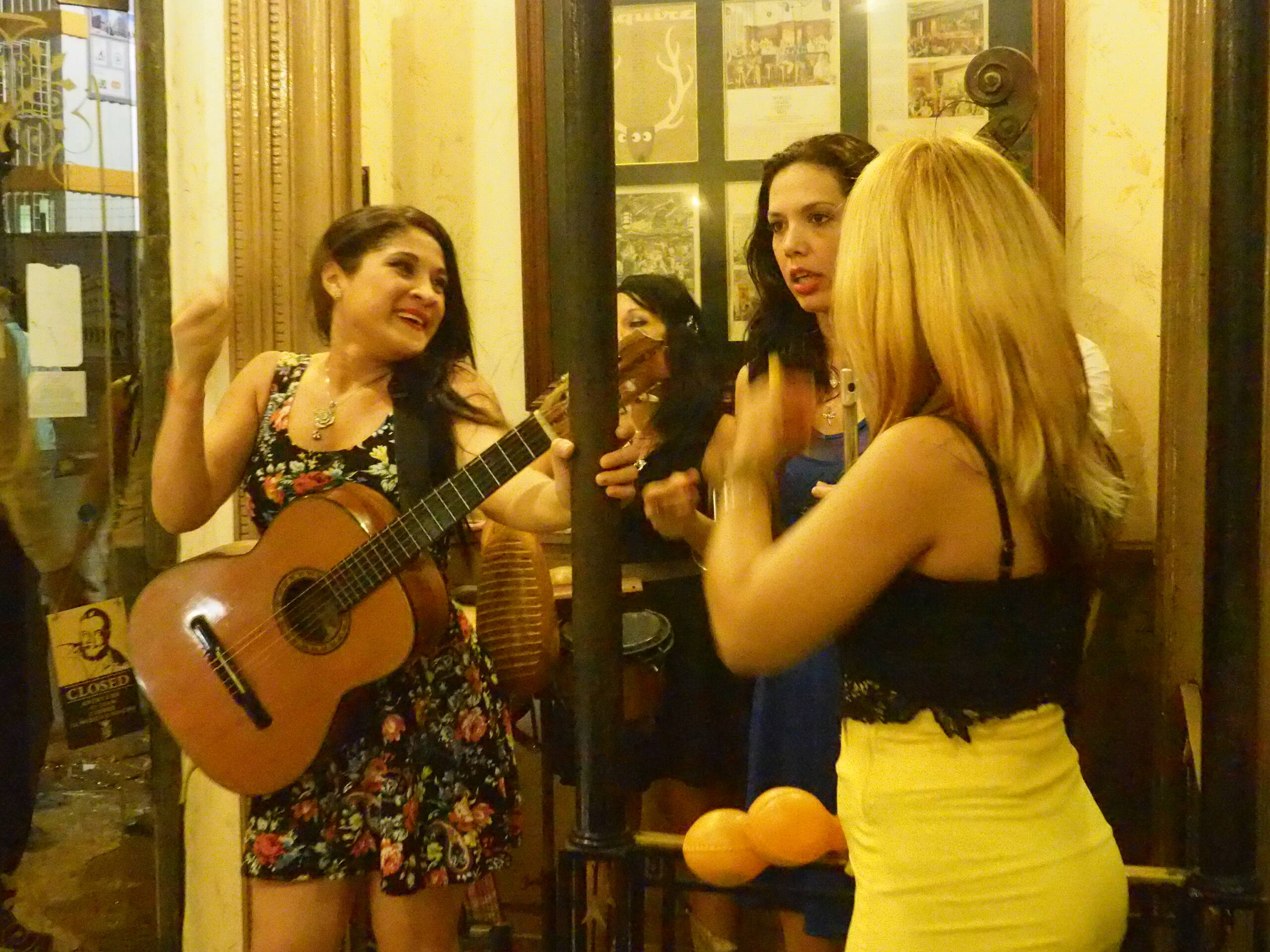
OLYMPUS DIGITAL CAMERA
如果一個地方能給我一種隨意、親切和無所訴求的生活狀態,那麼久足以讓我找到充分理由去那裡享受一切,這個地方就是哈瓦那。
If a place can offer me a casual, warm, and unpretentious way of life, then it is enough to give me ample reason to go there and enjoy everything. That place is Havana.
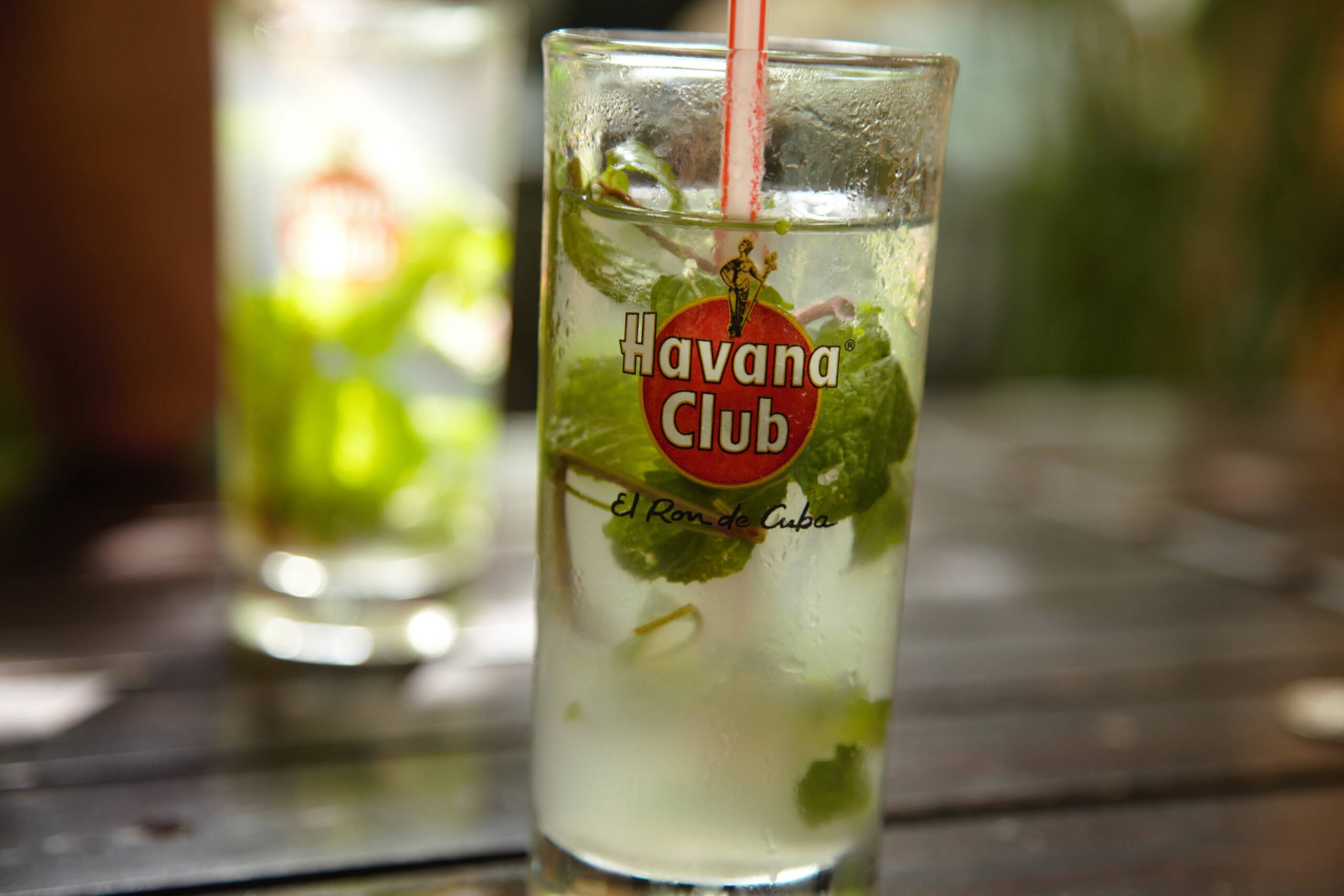 我享受這裡的一切
我享受這裡的一切